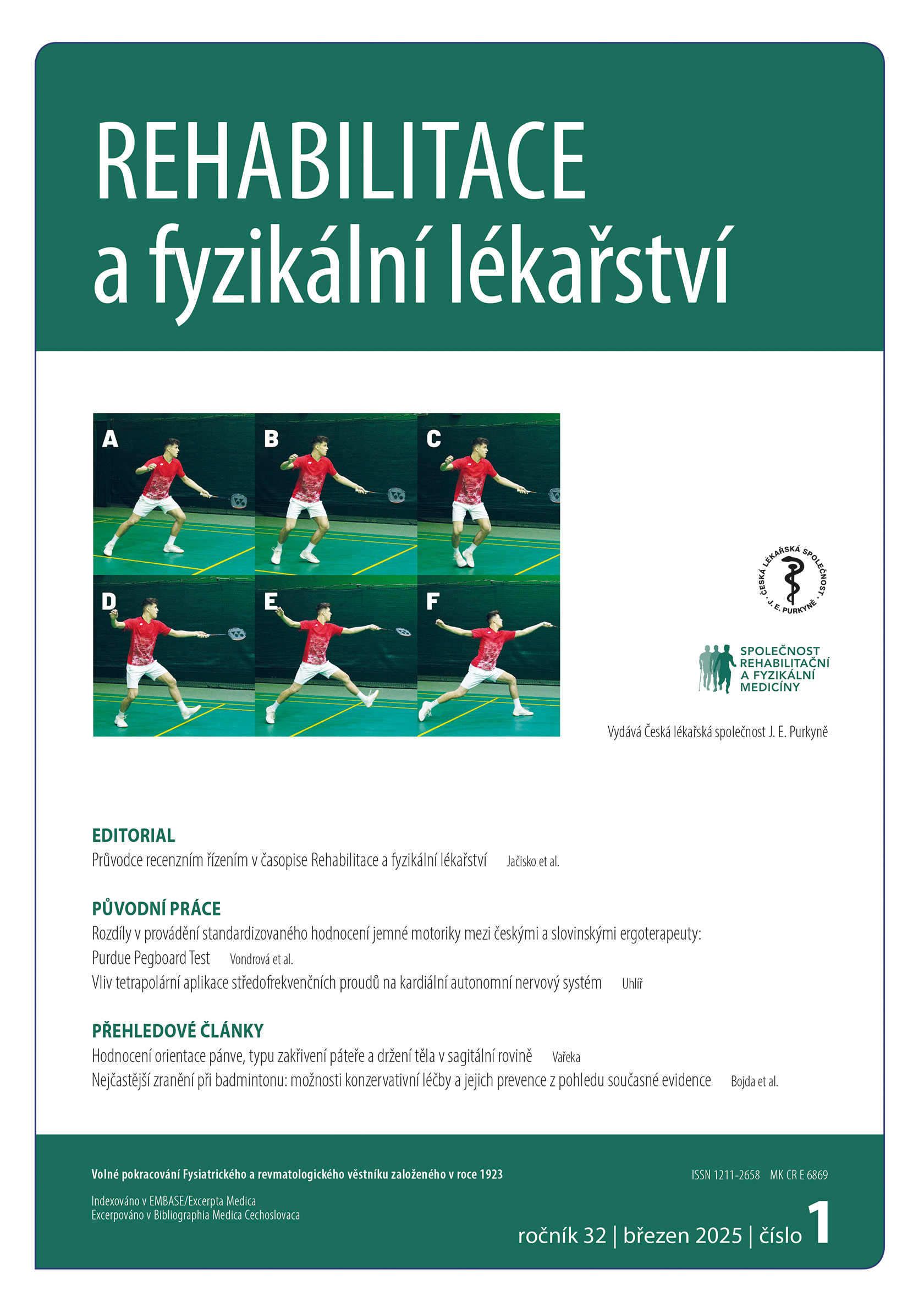Rozdíly v provádění standardizovaného hodnocení jemné motoriky mezi českými a slovinskými ergoterapeuty
Purdue Pegboard Test
Klíčová slova:
Purdue Pegboard Test, standardizovaný test, jemná motorika, objektivní hodnocení, ergoterapieAbstrakt
Úvod: Purdue Pegboard Test (PPT) patří mezi objektivní standardizované testy k hodnocení jemné motoriky. Obsahuje čtyři fyzicky prováděné subtesty, ve kterých je úkolem za omezený čas umístit do otvorů testovací desky co nejvíce součástek přesně podle instrukcí. Během testování často vznikají specifické situace, na které je potřeba ihned reagovat a následně je i zohlednit při počítání skóre.
Cílem projektu bylo zjistit, zda ergoterapeuti z České republiky a Slovinska jednotně reagují na vybrané specifické situace během testování pomocí PPT a zda se shodují i na jejich vyhodnocení.
Metodický postup: V roce 2021 proběhlo online dotazníkové šetření adresované českým a slovinským ergoterapeutům. Otázky obsahovaly i videoukázky šesti specifických situací, na které měli respondenti uvést způsob jejich reakce a vyhodnotit je. Odpovědi 87 českých a 67 slovinských ergoterapeutů byly analyzovány s využitím deskriptivní statistiky.
Výsledky jednoznačně potvrzují, že se ergoterapeuti ani v jedné zemi neshodli ve způsobech reakcí na vybrané specifické situace ani v jejich vyhodnocení. Znovupoužitý upadnutý kolík na testovací desku by započítalo 20 respondentů, dalších 17 uvedlo přesný opak. Většina ergoterapeutů (31x) by započítala pár kolíků, z nichž jeden nebyl zcela zastrčen do otvoru, zatímco 8 ergoterapeutů by ho nepočítalo. Kvůli dopomoci s manipulací s kolíkem druhou rukou během subtestu Obě ruce by nejvíce ergoterapeutů započítalo o jeden pár kolíků méně. Kvůli vynechávání otvorů při Kompletování by pokus ihned přerušilo 16 ergoterapeutů, zatímco 13 dalších to nepovažovalo za chybu. Nechtěně shozenou podložku z již hotového kompletu by nepočítala většina (23x) českých ani slovinských ergoterapeutů. Kvůli záměně pořadí rukou při tvorbě kompletů by 20 ergoterapeutů pokus anulovalo, zatímco 13 dalších by ho normálně počítalo.
Závěr: Dotazníkové šetření potvrdilo, že jsou nová pravidla pro řešení specifických situací vznikajících během testování pomocí PPT a pro jejich vyhodnocení uvedená v České rozšířené verzi manuálu pro PPT zcela nezbytná pro jednotné objektivní testování v klinické praxi.

